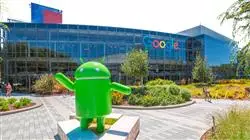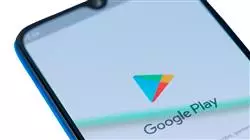University certificate
The world's largest faculty of information technology”
Introduction to the Program
Enjoy the experience of becoming a professional in a 100% online environment and recognized worldwide as the world’s largest digital university"

The number of mobile device users has grown exponentially in recent years, and with it, the need to develop applications for the different mobile platforms available in order to reach as many users as possible. Although each platform has its own native development model, reaching all of them implies producing and maintaining different specific versions, in different programming languages and with different development environments.
There are alternatives that seek cross-platform development and reuse the same code base for all users, no matter what platform they are on. In this program you will about them, ensuring compatibility with multiple mobile platforms (and with the ability to deploy them on the web or even as desktop applications on PCs). For this, it is imperative to have specialized knowledge for building Apps with a common code base, allowing developers to focus on adding new functionalities that bring value to their users.
Similarly, in a few months professionals will improve the development tools needed to create an Android application, installation of libraries, the factors to take into account to monetize it and how to upload different versions to the Play Store and use Git to manage them. And finally, they will be able to create their own application on iOS and will be able to launch it on Apple's App Store since they will develop the Stack of technologies used in the industry to create functional and scalable projects.
All this deployed in a diverse content format, adjustable to a fully online platform, and a revolutionary pedagogical methodology, being able to specialize or improve their professional skills without giving up any of their current activities and responsibilities. Without the need to leave your home or office, resulting in a better quality of life and well-being. Therefore, in 6 months, students will acquire the precise basis to undertake consulting tasks in all aspects related to mobile technology, develop their own business or climb positions in their employment status.
The best decision is in your hands. Enroll now in this Postgraduate diploma and learn the professional skills you need to shape your career as an App developer"
This Postgraduate diploma in Mobile Application Development Programming Languages contains the most complete and up-to-date program on the market. The most important features include:
- The development of practical cases presented by experts in Mobile Application Development
- The graphic, schematic, and practical contents with which they are created, provide practical information on the disciplines that are essential for professional practice
- Practical exercises where self-assessment can be used to improve learning
- Its special emphasis on innovative methodologies
- Theoretical lessons, questions for experts and individual reflection work
- Content that is accessible from any fixed or portable device with an Internet connection
Did you know that iOS is the second most used mobile operating system in the world? At the end of this program, you will have created your own iOS App and will be able to launch it on Apple's App Store"
The program’s teaching staff includes professionals from the sector who contribute their work experience to this educational program, as well as renowned specialists from leading societies and prestigious universities.
Its multimedia content, developed with the latest educational technology, will allow professionals to learn in a contextual and situated learning environment, i.e., a simulated environment that will provide immersive education programmed to prepare in real situations.
The design of this program focuses on Problem-Based Learning, by means of which professionals must try to solve the different professional practice situations that are presented to them throughout the program. For this purpose, the student will be assisted by an innovative interactive video system created by renowned and experienced experts.
You will master hybrid applications that combine the properties of web applications and native applications ensuring compatibility with multiple mobile platforms"

In this Postgraduate diploma you will create an Android App and master all the factors to monetize it and publish it on Play Store"
Why study at TECH?
TECH is the world’s largest online university. With an impressive catalog of more than 14,000 university programs available in 11 languages, it is positioned as a leader in employability, with a 99% job placement rate. In addition, it relies on an enormous faculty of more than 6,000 professors of the highest international renown.

Study at the world's largest online university and guarantee your professional success. The future starts at TECH”
The world’s best online university according to FORBES
The prestigious Forbes magazine, specialized in business and finance, has highlighted TECH as “the world's best online university” This is what they have recently stated in an article in their digital edition in which they echo the success story of this institution, “thanks to the academic offer it provides, the selection of its teaching staff, and an innovative learning method aimed at educating the professionals of the future”
A revolutionary study method, a cutting-edge faculty and a practical focus: the key to TECH's success.
The most complete study plans on the university scene
TECH offers the most complete study plans on the university scene, with syllabuses that cover fundamental concepts and, at the same time, the main scientific advances in their specific scientific areas. In addition, these programs are continuously being updated to guarantee students the academic vanguard and the most in-demand professional skills. In this way, the university's qualifications provide its graduates with a significant advantage to propel their careers to success.
TECH offers the most comprehensive and intensive study plans on the current university scene.
A world-class teaching staff
TECH's teaching staff is made up of more than 6,000 professors with the highest international recognition. Professors, researchers and top executives of multinational companies, including Isaiah Covington, performance coach of the Boston Celtics; Magda Romanska, principal investigator at Harvard MetaLAB; Ignacio Wistumba, chairman of the department of translational molecular pathology at MD Anderson Cancer Center; and D.W. Pine, creative director of TIME magazine, among others.
Internationally renowned experts, specialized in different branches of Health, Technology, Communication and Business, form part of the TECH faculty.
A unique learning method
TECH is the first university to use Relearning in all its programs. It is the best online learning methodology, accredited with international teaching quality certifications, provided by prestigious educational agencies. In addition, this disruptive educational model is complemented with the “Case Method”, thereby setting up a unique online teaching strategy. Innovative teaching resources are also implemented, including detailed videos, infographics and interactive summaries.
TECH combines Relearning and the Case Method in all its university programs to guarantee excellent theoretical and practical learning, studying whenever and wherever you want.
The world's largest online university
TECH is the world’s largest online university. We are the largest educational institution, with the best and widest online educational catalog, one hundred percent online and covering the vast majority of areas of knowledge. We offer a large selection of our own degrees and accredited online undergraduate and postgraduate degrees. In total, more than 14,000 university degrees, in eleven different languages, make us the largest educational largest in the world.
TECH has the world's most extensive catalog of academic and official programs, available in more than 11 languages.
Google Premier Partner
The American technology giant has awarded TECH the Google Google Premier Partner badge. This award, which is only available to 3% of the world's companies, highlights the efficient, flexible and tailored experience that this university provides to students. The recognition as a Google Premier Partner not only accredits the maximum rigor, performance and investment in TECH's digital infrastructures, but also places this university as one of the world's leading technology companies.
Google has positioned TECH in the top 3% of the world's most important technology companies by awarding it its Google Premier Partner badge.
The official online university of the NBA
TECH is the official online university of the NBA. Thanks to our agreement with the biggest league in basketball, we offer our students exclusive university programs, as well as a wide variety of educational resources focused on the business of the league and other areas of the sports industry. Each program is made up of a uniquely designed syllabus and features exceptional guest hosts: professionals with a distinguished sports background who will offer their expertise on the most relevant topics.
TECH has been selected by the NBA, the world's top basketball league, as its official online university.
The top-rated university by its students
Students have positioned TECH as the world's top-rated university on the main review websites, with a highest rating of 4.9 out of 5, obtained from more than 1,000 reviews. These results consolidate TECH as the benchmark university institution at an international level, reflecting the excellence and positive impact of its educational model.” reflecting the excellence and positive impact of its educational model.”
TECH is the world’s top-rated university by its students.
Leaders in employability
TECH has managed to become the leading university in employability. 99% of its students obtain jobs in the academic field they have studied, within one year of completing any of the university's programs. A similar number achieve immediate career enhancement. All this thanks to a study methodology that bases its effectiveness on the acquisition of practical skills, which are absolutely necessary for professional development.
99% of TECH graduates find a job within a year of completing their studies.
Postgraduate Diploma in Mobile Application Development Programming Languages
.
In the digital context in which we live, the development of mobile applications has become an essential element for companies and users. If you are interested in venturing into this field, we present you our Postgraduate Diploma in Mobile Application Development Programming Languages program. At TECH Global University we will teach you how to use the most popular programming languages, such as Java and Kotlin, to create high-quality and powerful mobile applications. You will learn how to design and develop apps for Android and iOS, and implement the latest technologies to enhance the user experience. Enroll now and be part of the digital future!







